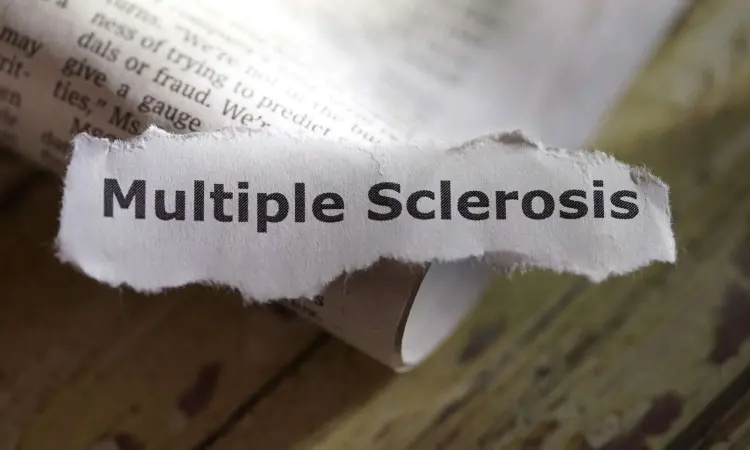- Home
- Medical news & Guidelines
- Anesthesiology
- Cardiology and CTVS
- Critical Care
- Dentistry
- Dermatology
- Diabetes and Endocrinology
- ENT
- Gastroenterology
- Medicine
- Nephrology
- Neurology
- Obstretics-Gynaecology
- Oncology
- Ophthalmology
- Orthopaedics
- Pediatrics-Neonatology
- Psychiatry
- Pulmonology
- Radiology
- Surgery
- Urology
- Laboratory Medicine
- Diet
- Nursing
- Paramedical
- Physiotherapy
- Health news
- Fact Check
- Bone Health Fact Check
- Brain Health Fact Check
- Cancer Related Fact Check
- Child Care Fact Check
- Dental and oral health fact check
- Diabetes and metabolic health fact check
- Diet and Nutrition Fact Check
- Eye and ENT Care Fact Check
- Fitness fact check
- Gut health fact check
- Heart health fact check
- Kidney health fact check
- Medical education fact check
- Men's health fact check
- Respiratory fact check
- Skin and hair care fact check
- Vaccine and Immunization fact check
- Women's health fact check
- AYUSH
- State News
- Andaman and Nicobar Islands
- Andhra Pradesh
- Arunachal Pradesh
- Assam
- Bihar
- Chandigarh
- Chattisgarh
- Dadra and Nagar Haveli
- Daman and Diu
- Delhi
- Goa
- Gujarat
- Haryana
- Himachal Pradesh
- Jammu & Kashmir
- Jharkhand
- Karnataka
- Kerala
- Ladakh
- Lakshadweep
- Madhya Pradesh
- Maharashtra
- Manipur
- Meghalaya
- Mizoram
- Nagaland
- Odisha
- Puducherry
- Punjab
- Rajasthan
- Sikkim
- Tamil Nadu
- Telangana
- Tripura
- Uttar Pradesh
- Uttrakhand
- West Bengal
- Medical Education
- Industry
Postpartum Relapse risk in Multiple Sclerosis Increased In First Few Months

A recent study published in the Journal of Neurology Neurosurgery and Psychiatry suggests that the postpartum relapse risk in MS is increased during the first and second postpartum trimesters and declines until the fourth 3 months-period postpartum.
Multiple sclerosis (MS) is a chronic inflammatory and degenerative disorder of the central nervous system. Worldwide more than 2.8 million people are diagnosed with MS, with a female to male ratio of almost 3:1. Around 85% of people with MS have a relapsing-remitting disease (RRMS) at onset, characterised by acute or subacute neurological deficits (relapses) followed by complete or incomplete recovery. As MS most often manifests below the age of 40, pregnancy is an important issue for women with MS (wwMS).
Until the end of the 1990s, women diagnosed with MS were often advised not to get pregnant. While evidence from the last 20 years indicates that inflammatory disease activity is substantially reduced during pregnancy, the effect on postpartum risk for rebound disease activity is less clear. Pathophysiologically, a reduction in the relapse rate during pregnancy and an increase after childbirth are consistent with the immunological and hormonal changes occurring during pregnancy. However, one of the most recent cohort studies on postpartum disease activity and pregnancy is in contrast to the earlier reports. This could—at least in part—be linked to substantial changes that have occurred in the epidemiology, severity of MS and the therapeutic landscape over recent years.
In the systematic review and meta-analysis done by Schubert et al, the authors assessed the postpartum relapse rate of patients in MS and could confirm an increased relapse risk at 3 and 6 months after delivery in comparison to the pre-pregnancy period (including in studies of recent cohorts). However, it also seemed that in the following months postpartum, the relapse rate decreased and reached pre-pregnancy activity 7–9 months postpartum. The use of higher efficient DMTs was associated with a more than doubled relapse risk, while exclusively breast feeding was associated with a reduced postpartum relapse risk ratio.
The results of our meta-analysis show a large between-study heterogeneity of findings for the first and fourth trimesters as well as for the entire postpartum year. Besides differences in the number of women who breast fed and received therapy, this is presumably due to methodological differences between the studies. Here a main confounding factor could be the ascertainment of relapses. Most studies collected at least the relapse rate before pregnancy retrospectively. Variation in relapse definition might be another source of bias.
Family planning in wwMS requires careful consideration, especially because many DMTs are contraindicated during pregnancy. The choice for DMT in wwMS with childbearing preferences, among others, depends on the disease activity, the safety of the drug and the administration.
According to this data, DMT exposure before or during pregnancy is not associated with a reduction of this phenomenon. However, exclusive breast feeding seems to be associated with a beneficial effect on the postpartum relapse rate. The need to restart maternal treatment with DMTs on the one hand and the wish to breast feed on the other, leads to a decisional dilemma which needs highly competent counselling. Future studies should aim for safety analyses of new and known DMTs during breast feeding to combine the most effective strategies to reduce the postpartum relapse rate.
Reference
Charlotte Schubert et al.Postpartum relapse risk in multiple sclerosis: a systematic review and meta-analysis. J Neurol Neurosurg Psychiatry. 2023 Feb doi: 10.1136/jnnp-2022-330533.
MBBS, DrNB Neurosurgery
Krishna Shah, MBBS, DrNB Neurosurgery. She did her MBBS from GMC, Jamnagar, and there after did direct 6 Year DrNB Neurosurgery from Sir Ganga Ram Hospital, Delhi. Her interests lie in Brain and Spine surgery, Neurological disorders, minimally invasive surgeries, Endoscopic brain and spine procedures, as well as research.
Dr Kamal Kant Kohli-MBBS, DTCD- a chest specialist with more than 30 years of practice and a flair for writing clinical articles, Dr Kamal Kant Kohli joined Medical Dialogues as a Chief Editor of Medical News. Besides writing articles, as an editor, he proofreads and verifies all the medical content published on Medical Dialogues including those coming from journals, studies,medical conferences,guidelines etc. Email: drkohli@medicaldialogues.in. Contact no. 011-43720751


